NKU Team Developed Self-sustaining Personal All-day Thermoregulatory Clothing Using Only Sunlight
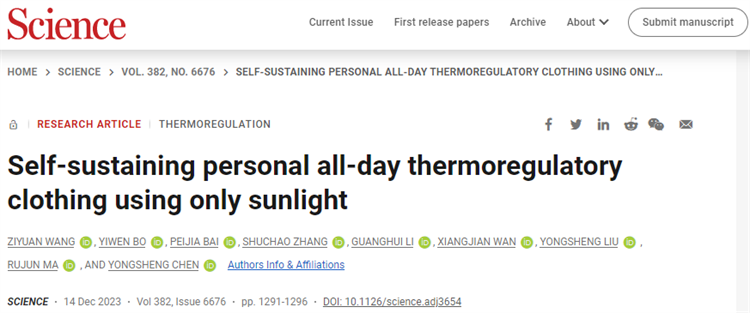
The latest research results made by Nankai University were published online in top international journal Science under the title of “Self-sustaining personal all-day thermoregulatory clothing using only sunlight”. This is the second Science paper published by Nankai University in less than a month, and it is also the third Science paper published by the team led by Professor Chen Yongsheng from the College of Chemistry, Nankai University.
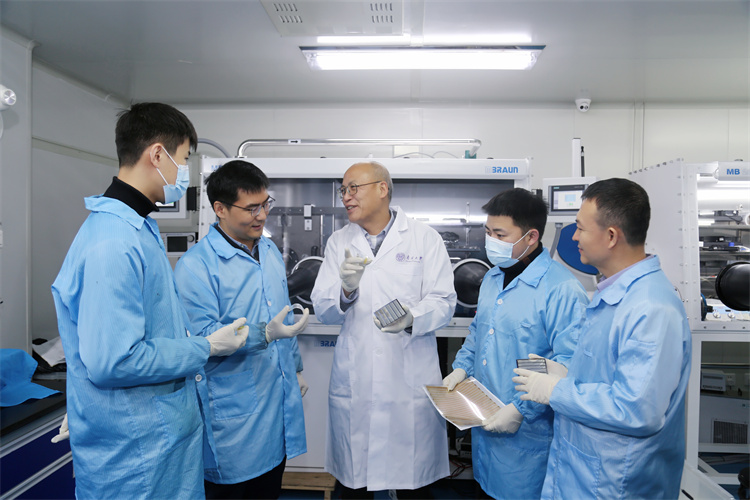
The research team led by Professor Chen Yongsheng from the College of Chemistry of Nankai University, Professor Ma Rujun from the School of Materials Science and Engineering, and Professor Liu Yongsheng from the College of Chemistry broke new ground in the field of daily wearable thermoregulatory clothing materials.
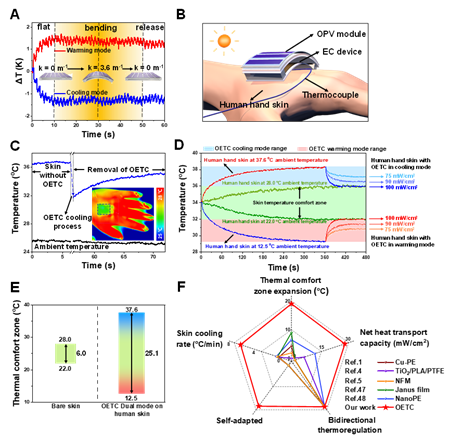
The team designed and established a flexible and sustainable personal thermoregulatory clothing system. The system is capable of responding quickly to extremely complex environmental temperature changes. Using flexible solar devices, it harnesses the energy of sunlight to drive efficient electrocaloric (EC) devices, so that the human thermal comfort zone extends from 6K (22-28 °C) to 25.1K (12.5-37.6 °C). Moreover, it is characterized by a simple structure, compact design, low energy consumption, and high efficiency, relying on sunlight as the only energy source. It has strong self-adaptability and allows for 24 hours of controllable and dual-mode thermoregulation with 12 hours of sunlight energy input.
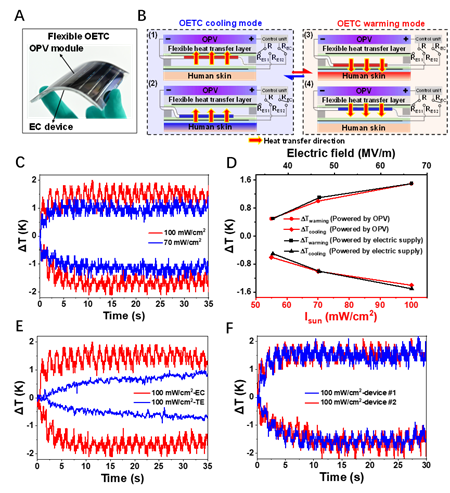
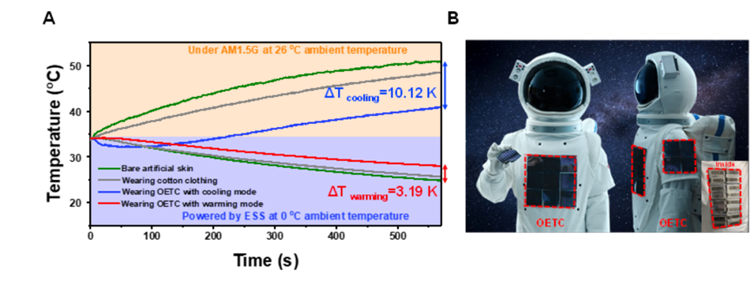
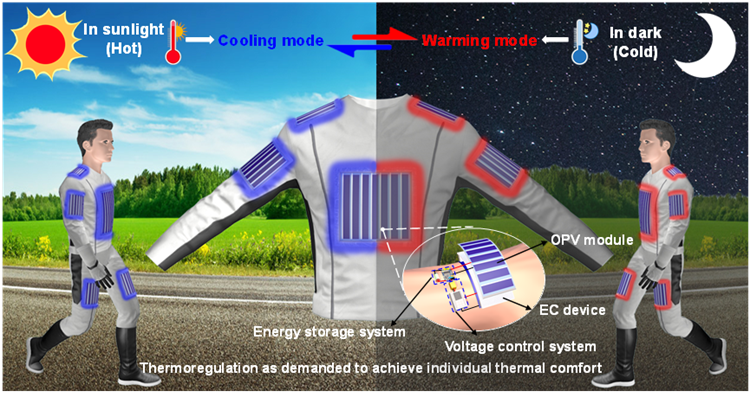
Based on the team’s previous progress in flexible solar energy, electrocaloric, thermal management and other areas (Science 2018, 361, 1094-1098; Science 2017, 357, 1130-1134), they designed a flexible solar cell module and a flexible EC device module, and combined the two to make a new flexible wearable active solar thermal management system, thereby achieving the bidirectional active human thermal management. The human body is cooled in the sunlight (high temperature) and warms up in the dark (low temperature). The ambient temperature range in which the human body can live has been more than tripled.
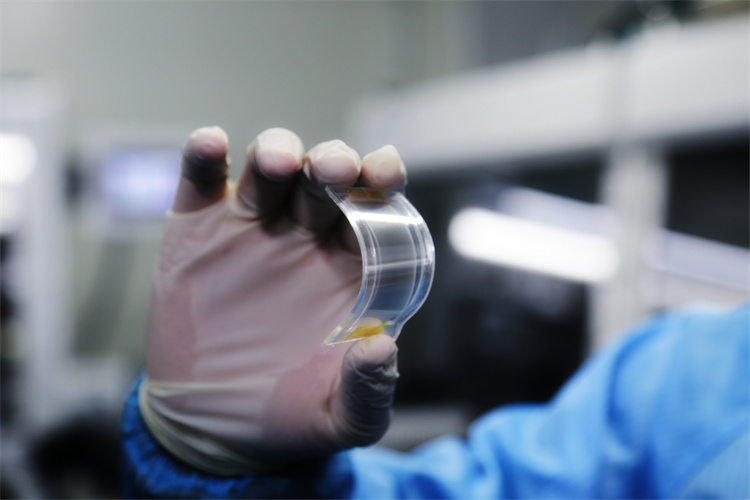
This new solar thermal management system can also capitalize on the flexible characteristics of organic solar cells and EC devices and integrate them into human body-friendly clothing, giving a smart function without compromising skin comfort.
This flexible thermal management clothing can extend the body’s thermal comfort zone from 6K (22-28°C) to 25.1K (12.5-37.6°C), up by more than 300%. Moreover, it is highly adaptable and features a simple structure, compact design, low energy consumption, and high efficiency, with sunlight as the only energy source.
Based on previous scientific research progress in organic solar energy, EC devices, and so on, the team has developed an efficient and active bidirectional human body flexible thermal management system. This management system exhibits application potential in the field of thermoregulation, but a whole host of key scientific and technical problems remain to be solved, such as how to further improve energy efficiency, integrate larger-scale clothing, the need to develop new and more efficient solar material devices and EC devices, and the need to optimize integrated device structure.
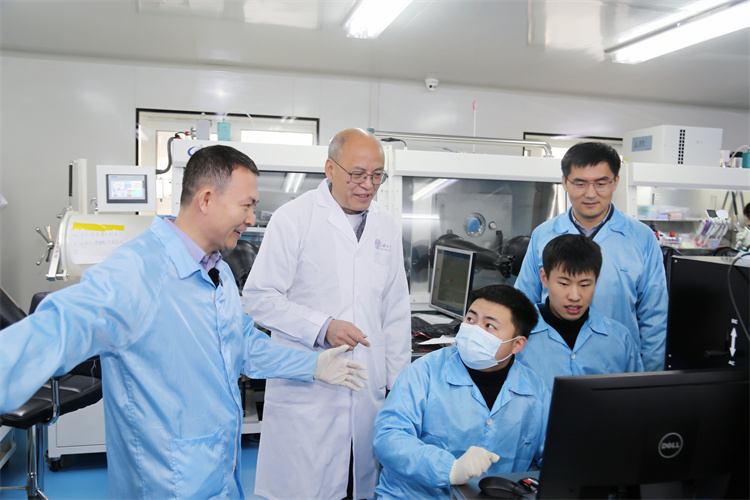
Wang Ziyuan, a doctoral student of the College of Chemistry, and Bo Yiwen, a doctoral student of the School of Materials Science and Engineering, are the co-first authors. Chen Yongsheng is the first corresponding author, and Ma Rujun and Liu Yongsheng are the co-corresponding authors. The College of Chemistry of Nankai University is the first authors’ affiliation.
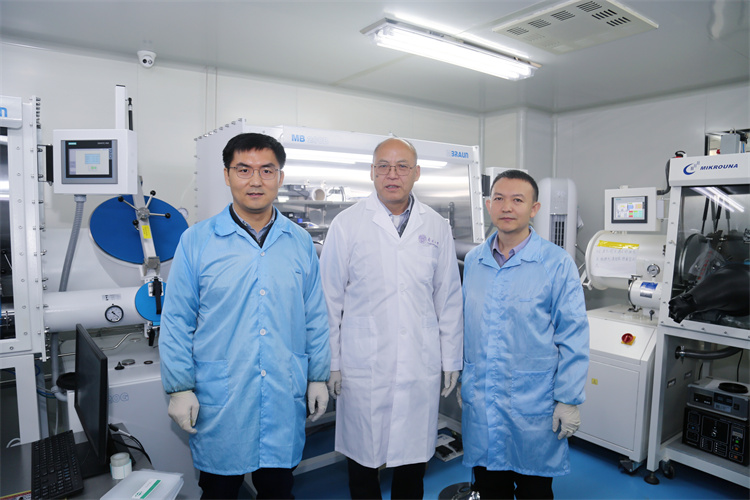
Original of the paper:
https://www.science.org/doi/10.1126/science.adj3654
(Edited and translated by Nankai News Team.)









